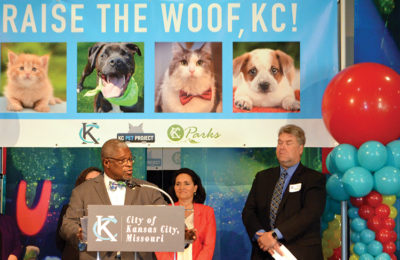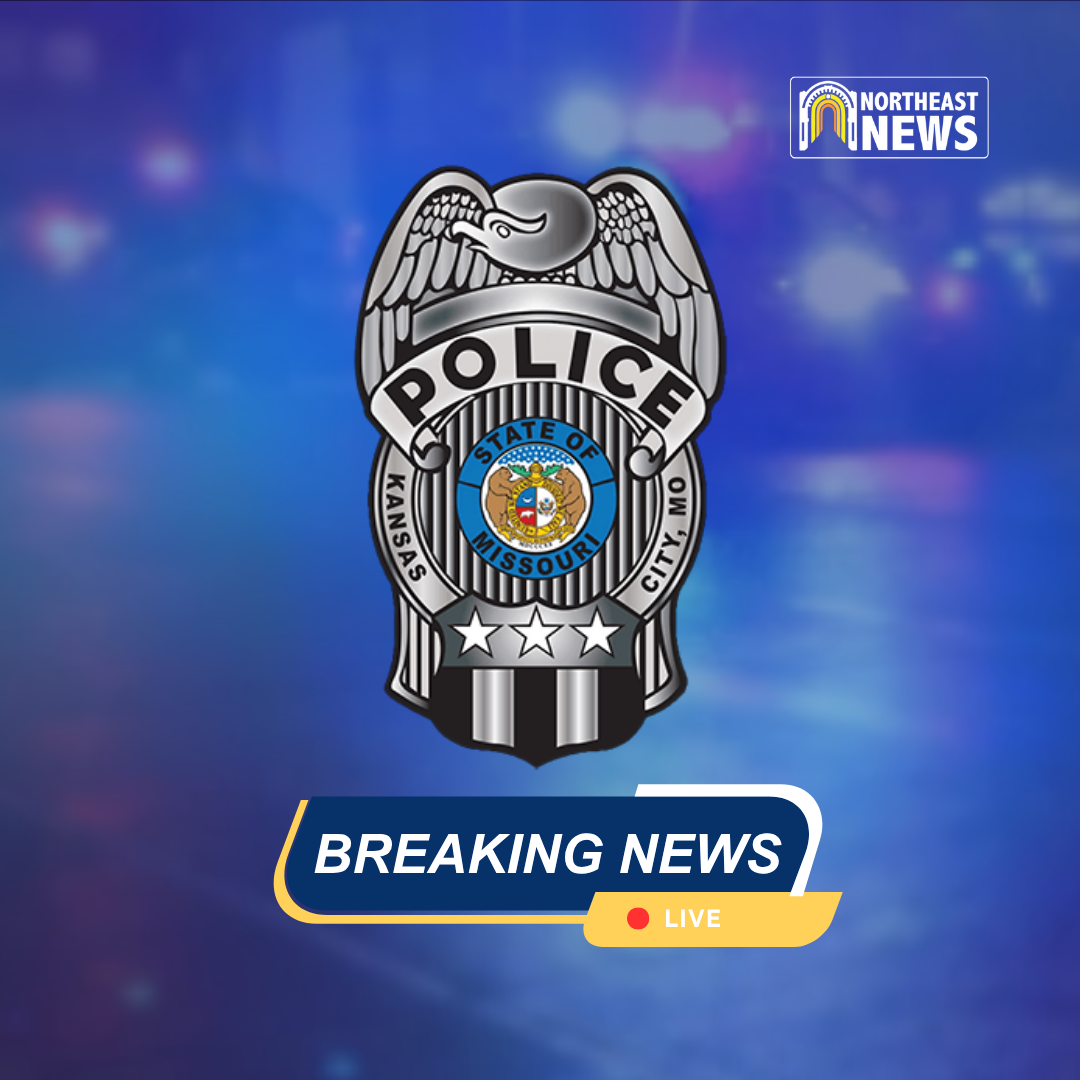Over the past 15 months, Kansas City, Missouri has focused a microscope on the Animal Health and Public Safety division.
In September of 2016, at the behest of City Council, the Kansas City, Missouri Auditor’s Office initiated an audit on the City’s Animal Health and Public Safety division. On August 30, 2017, the audit – with 17 recommendations for the improvement of operations – was released to the public. It was formally presented to the Council’s Neighborhoods and Public Safety committee on September 27. Two months later, on November 29, a resolution co-sponsored by Councilwomen Teresa Loar and Jolie Justus was introduced to the joint committee of Finance & Governance and Neighborhoods & Public Safety. The resolution, if passed, would authorize the City Manager to look into the privatization of Animal Health and Public Safety.
Justus suggested that the resolution could bring symmetry to animal control services.
“We believe that it creates efficiencies and actually saves taxpayer dollars by bringing all services under one roof,” Justus said. “It allows the same training, education, and best practices that are currently in place for our shelter operations to be expanded throughout our field operations.”
Justus added that Animal Health and Public Safety is currently expected to move its operations to the planned Swope Park campus, which could be completed as soon as 2019. Taxpayers have already committed $14 million to the new shelter with the passage of Question 3 in the April 2017 G.O. bond vote. With both operations under one roof, Justus posited, why not combine the services?
“This resolution responds to several recommendations that were made by the City Auditor in a 2017 audit of Health and Public Safety,” Justus said. “Those recommendations included creation of a shared or collaborative vision for animal care and control, greater consistency in enforcement efforts and consistent annual training.”
Second District Councilwoman Teresa Loar agreed with Justus, pointing out that there is a national trend towards combining animal shelter operations with animal control services. Loar specifically named Austin, Texas – home of the nation’s largest no-kill animal shelter – as an example. In many ways, Austin has an exemplary animal health and safety operation. A 2015 audit, however, showed that combining shelter and animal control services wasn’t necessarily an automatic elixir. That audit reported that in Austin, the highest-priority calls took an average of 16 hours to respond to. The average response time for non-priority calls was 54 hours.
“Animal Services staff and management indicated that one cause for long response times is that officers are encouraged to spend significant time driving around trying to locate the owners of stray animals,” reads the 2015 audit. “Animal Services encourages this approach in response to the consistent capacity overflows at the shelter.”
In response to that audit Austin’s animal shelter operation was expanded, just as Kansas City intends to do with its new Swope Park shelter. Still, KCMO City Auditor Doug Jones suggested that the combination of services doesn’t necessarily ease tensions between shelter operations and animal control.
“Even when the sheltering organization and the field operation report to the same bosses, there’s still a natural friction between the two groups,” Jones said.
According to Jones, the timing of the November 29 resolution was atypical. An entity usually has a six-month window to begin implementing audit recommendations before being asked to report back to the City Auditor. Jones said that can’t recall a scenario where a department had been outsourced before a six-month report on audit recommendations had been delivered. Though Jones declined to estimate how many staff hours had been dedicated to the AHPS audit, he indicated that one senior auditor worked full-time, and another senior auditor came in to help with some of the data elements. An Audit Manager also oversaw the process, providing day-to-day oversight.
Despite the timing of the resolution, Jones did emphasize to the committee that the findings in the Animal Health and Public Safety audit were significant.
“We found a lot of critical findings in this audit, and they do need to be addressed as quickly as possible,” Jones said.
The Animal Health and Public Safety division was concerned by the November 29 proceedings; a handful of officers attended the joint committee meeting to speak out against the resolution. Among the speakers was American Federation of State, County and Municipal Employees (AFSCME) Local 500 President Robert Patrick, who claimed that the resolution violated the collective bargaining agreement between animal control workers and the City.

“Today you bring me here because of a direct violation of our contract that was negotiated through our collective bargaining agreement. The City never notified the union of their intent to outsource, which is Article 24, Section 1 and 2 of our contract, page 27,” Patrick said. “It is our intent, by notifying the City Manager and Mayor, and by speaking here today, (to put) the City on notice that we wish the contract to be upheld and enforced.”
The City’s legal department agreed that the collective bargaining agreement (CBA) with the Local 500 union offers the City’s animal control officers certain protections. For instance, Article 24 of the agreement states that when work is to be outsourced, the City needs to provide written notice to the union regarding the work that the City wishes to address. That notice is to include “any contractors identified as potential providers of the requested services,” as well as any proposal developed as of the date of the notice.
Article 24 also requires the City to create an insourcing/outsourcing committee, to be comprised of seven people: three designated by the City Manager, three union members designated by the Local 500 president, and one Council member designated by the Mayor. In a letter dated November 17, Local 500 identified its three candidates for the committee.
After an initial meeting of the insourcing/outsourcing committee, a follow-up session must be held between 15 and 30 days later. From there, any Request for Proposal intended to outsource work cannot be sent out unless it has first been provided to Local 500. An RFP would also trigger a mandatory meeting with the insourcing/outsourcing committee, to be held within 30 days after the RFP is issued. Importantly, Article 24 indicates that those committee meetings must be held in good faith towards resolving any issues.
In addition to the legal protections outlined above, Local 500 also has a contract to provide animal control services through April of 2020. Of the 22 AHPS staff members, 15 are covered under the CBA.
“I think this is putting the cart before the horse, and we need to step back and honor the contract,” Patrick said.
According to the 2017 Citizen Satisfaction Survey, the average Kansas City resident isn’t especially concerned by Animal Health and Public Safety services. Some 84% of those who were surveyed were either satisfied or neutral regarding the customer service received by animal control officers. In the 3rd and 5th districts (55% of all service requests), customer satisfaction for AHPS is greater than 80%, and as high as 89%.
With that being the case, KCMO Neighborhoods Communications Liaison John Baccala said that he was “disappointed” with the timing of the resolution.
“The audit was just released three months ago. When the audit was released, we were given six months to address the concerns,” Baccala said. “We have done that, and we continue to do that. It’s just a little disappointing that we weren’t given the full six months to try to rectify the issues that were brought forward in the audit.”
For AHPS employees, the timing of the resolution begged the question: why spend more than a year conducting an audit of a city department, and then propose outsourcing that department’s work before finding out how the audit recommendations have been implemented?
Between the public testimony provided and background conversations with several city employees affiliated with the department, a picture emerged of the predicament. Whatever the intent, animal control officers clearly felt betrayed by the timing of the resolution. One animal control officer who spoke with the Northeast News suggested that the resolution has left morale at “abysmal” levels.
“I get called every name you can possibly think of, but I’m still here every day because I love this job,” said the animal control officer. “They’re going to take that from me, and it sucks.”
What cannot be debated is the strained relationship between animal control officers and the Kansas City Pet Project. The communication breakdown between the two entities was a significant finding within the AHPS audit. City Auditor Doug Jones even brought it up during the November 29 meeting with the joint committee.
“The Division and KC Pet Project are partners in delivering the city’s animal care and control services, and they do have a strained working relationship which interferes with the ability of this public-private partnership to collaborate effectively in the delivery of these animal care and control services,” Jones said.
According to representatives on both sides, the relationship hasn’t improved since the audit findings were released in August.
“We definitely do our best to work together. It’s no secret, especially now, that there has been some strain in the relationship,” said Tori Fugate, Director of Marketing and Communications for KC Pet Project. “There has to be a shared vision between those two entities. At this point, there is not.”
The source of the continued disconnect remains a matter of debate. The relationship, however, is unlikely to improve if KC Pet Project bids on the animal control contract, when and if it is outsourced. Fugate acknowledged that the organization would be interested in handling animal control services if the City decides to privatize the work.
“We are excited about the potential opportunity, but it’s still very much in the early stages,” Fugate said.
For her part, Justus said on Thursday, December 7 that the resolution isn’t a front burner issue at City Hall, and that the joint committee is unlikely to meet again before February. Even if the resolution is instantaneously approved, it merely instructs City Manager Troy Schulte to investigate the feasibility of outsourcing over a 90-day period. That timeline would leave plenty of opportunity for AHPS to provide a follow-up report to the joint committee before Schulte finishes his work.
Regardless of the final decision, animal control officers say they have been shaken by the proposed resolution. When the audit began, officers largely saw it as a positive sign. They described themselves as active participants in the process, and were initially hopeful that the audit would lead to much-needed changes in the management of animal control services. Since the audit’s release, AHPS has spent three months implementing its 17 recommendations. Now they wonder: to what end?
Marilyn Barnett of AHPS testified during the joint committee meeting on November 29. She acknowledged the merits of the audit findings, but pleaded for the chance to prove that changes would be implemented.
“These officers are human; mistakes happen,” Barnett said. “To not give animal control a chance to improve on our shortcomings is not giving us the justice we deserve.”

















